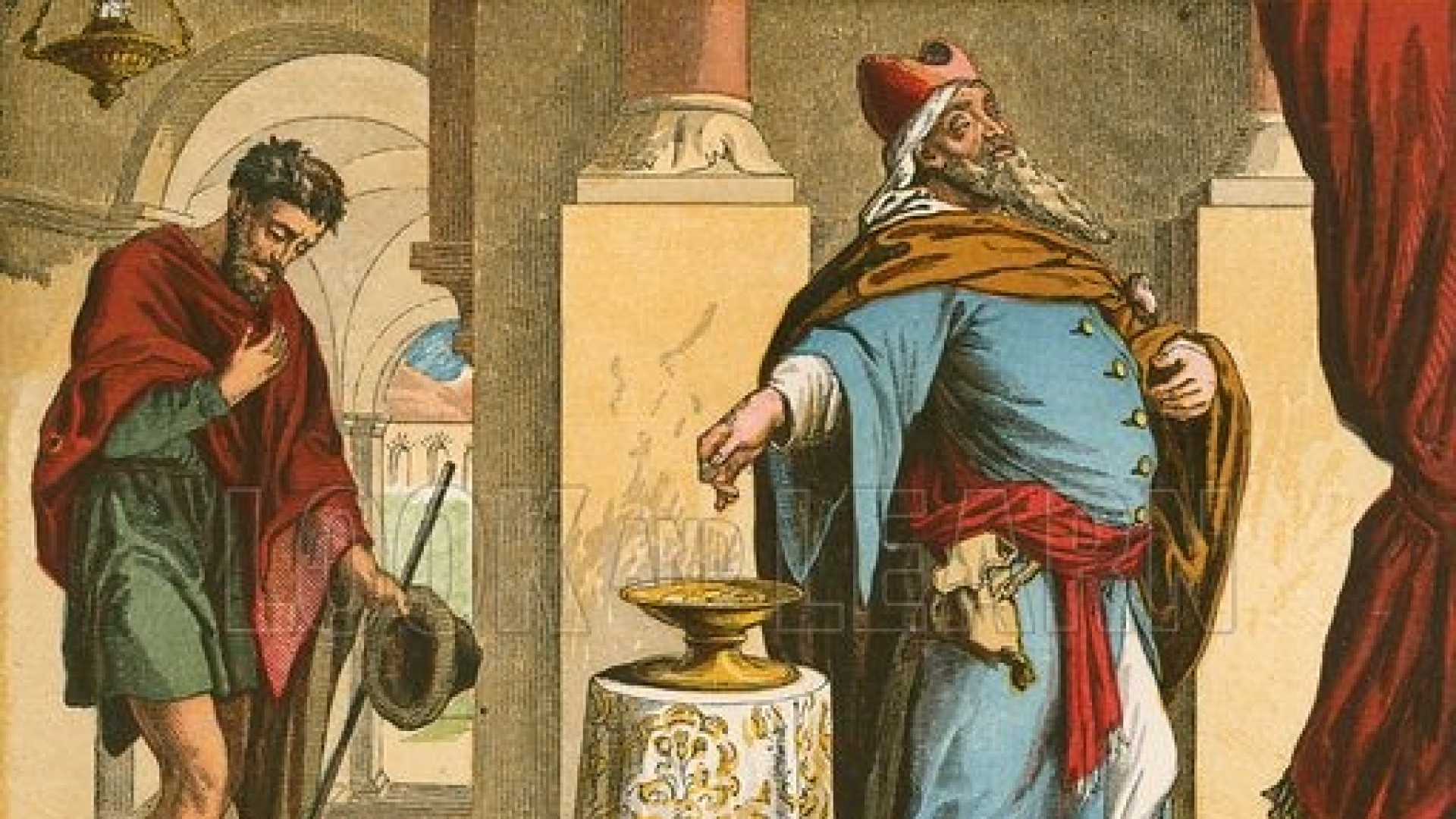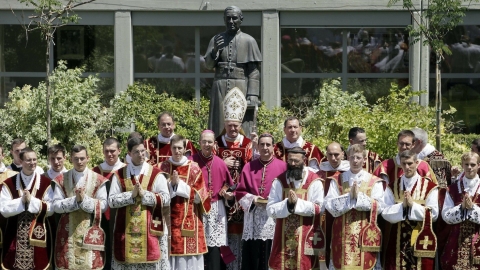The Beginning of Sin

It is an inevitable law of nature that the tragic flaw of every creature is rooted in its strength. The oak is broken by the storm that bends the grass. The diamond, hard, impervious, unyielding, cleaves under a blow that leaves softer things unharmed. So, with those creatures whom God made most like Himself. Their good is most like His good; their minds mirror His. There lies their danger. The very excellence of their created nature is a moving force that can draw them away from God. Their wills, free because they are Godlike, can turn from Him. That turning is what cast shining Lucifer into the depths of hell and placed a flaming sword between Adam and Paradise.
The author of Ecclesiasticus has called pride the beginning of sin, and his words are exact in every sense. Pride was the first sin, for the sin of the angels was pride. Man's fall from grace came through pride; and every sort of sin has pride as its beginning. It is not without reason that Solomon has sown the books of Wisdom with warnings against pride.
Later thinkers, with a passion for precision, have defined pride more exactly. It is, they say, an inordinate desire of one's own excellence. The crucial word here is "inordinate." Pride is not a shoddy sin. It stems, not from the weakness of the sinner, but from his strength. The proud man is not drawn by the false glitter of fool's gold. He is drawn to a real good, but he seeks it inordinately. A proud creature loves that in himself which is Godlike. He sins in making himself God.
All this seems to lead to the conclusion that there is a certain inevitability to pride, that pride is natural and therefore not sinful. Nothing could be farther from the truth. The proud man does not sin from passions of the flesh. He does not sin from weakness or ignorance. He sins coldly in turning from God. Every sin involves a turning, which is a double process. The sinner turns from God and to a lesser good.
The carnal man turns to the goods of the body, the avaricious man to gain, and in turning to these he turns away from God. The proud man, as also the proud angel, turns directly away from God. He sees his own excellence and will not be subject to God. Other sins lead men away from God in pursuit of a false happiness. Pride turns its back on Him and says: "I will not serve."
Pride is the beginning of all sin because it is the end of all sin. The motto of Mary, Queen of Scots, "In my end is my beginning," states a profound truth. Any act, any creature, since it comes from God must return to Him; this is the order of the universe. The creatures most like God, men and angels, must return to God if they are to preserve this order. Endowed as they are with freedom, they may pervert the order, placing their goal in themselves. It is in this sense that pride is the beginning of every sin, for every sinner puts the goal of his act in himself. The carnal sinner seeks his own sensual satisfaction, the unjust man puts his own gain in the place of God.
The most characteristic feature of pride is the sinner's inordinate desire of his own perfection, his own excellence. Other sins come easily to the proud man, for they serve to feed this desire, to satiate it in some way. Pride is not exactly a capital sin. It is not one of the seven fountainheads of the rivers of evil. If we liken the capital sins to streams, then ice-hard pride is the glacier that feeds them all. Vainglory is so closely linked with pride as to be almost indistinguishable from it. The proud man falls an easy prey to anger and envy, for he sees in every action and every success of another a threat to his own excellence. Sloth drags him down, for his end has become himself and not God; and the labor of reaching God repels him. He pursues riches avariciously, for riches manifest his excellence. Even the animal vices of lust and gluttony arise from pride, for the law of reproduction and self-preservation is warped to serve as a manifestation of the sinner's greatness. The sin that damned the highest angel can lead man to the grossest animality.
But pride is more than a source (in the sense of being a goal) for the obvious evils of the capital sins. It is as insidious as a colorless gas, seeping into the intimacies of the soul. We have seen that pride looks to the creature's own excellence as its object. St. Augustine put it well when he said that other vices are shown in evil works, but that pride lies lurking in ambush for good works to destroy them. The beginnings of pride may find their object in a virtuous act: the philosopher who feels a warm glow in his own goodness at Christmas time; the apologist who has scored over the forces of error; the teacher who has aught well, the confessor who has reconciled a hardened sinner; all may fall to the ambushed vice if they fail to see that they are but instruments in the hand of God.
Every saint, every writer on things spiritual, has emphasized the importance of the practice of humility. Humility takes its place first among the trail-breaking virtues: those virtues which remove obstacles to spiritual progress. The will whose path has been cleared by humility of the barricade of pride goes straight to its goal. The soul whose vision has been freed of blinding pride sees values in their proper light. For the humble man, God is the end of all things. Man's excellence is not disparaged, but it is seen as coming from God and as reaching toward Him. Humility is the antidote to pride's subtle poison. Pride is the stumbling-block, humility the foundation stone of virtue.





